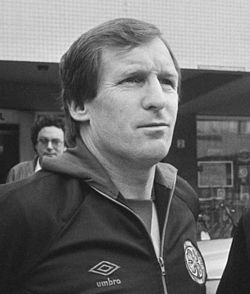
This weekend we heard the sad news that Billy McNeill the former Celtic captain is suffereing from Dementia. A much as it is a sad story it has brought to the fore the need for an investigation into neurological conditions and football. It has taken some legends of the game to bring this to the attention of the governing bodies. Recently I read about Ron Yeats and Tommy Smith both former Liverpool captains suffering from dementia. More former footballers conditions will no doubt emerge. I am not old enough to remember the heavy leather footballs which players in the 1960’s and 70s had to play with. But it doesn’t take a medical degree to know that blows to head can cause severe damge.
American football in the US and also rugby have done some extensive research which has found a corelation. That athletes from these sports have been found to be at higher risk. There has not been sufficient studies into football. Why is that? Thankfully Alzeihmers Scotland will be holding a summit into this with the football authorities and medical professionals. Dementia is on the rise across society and there for it maybe that the high profile former professional footballers are an unfortunate coincidence. But given the amount of money in the professional game now it is only right that some of that is reinvested back into medical research. After all many of these players brought us manys such joy.
We should not forget that football is a sport and should be enjoyed by all who play it. But it is also a career and the Health and Safety at Work Act is equally applicable to professional footballers. The clubs have a duty of care and the associations have a responsibility to ensure that matches are safe for all participants. Hence the suggestion that players may have to sign a disclaimer from dementia is ludicrous. Everyone should be working together to ensure that footballers at all levels are able to enjoy the healthy benefits the game can bring.